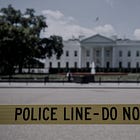Before Election, N.H. Election Software "Misconfigured" to Connect to Russian Servers
Update #15 | Plus: Biden 2020 cybersecurity lead calls for audits & Spoonamore seeks 'America PAC' check recipients who never signed the petition
If you haven’t read the original post,
I highly recommend reading it first ↓
Update #15
It’s been nearly a month, yet the pang of disbelief surrounding the results remains just as sharp as it did at 2 a.m. on Election Night. That uncertainty and frustration have lingered like a dry cough. As more time passes, at quiet undercurrent of voices crying foul and calling for audits has grown louder.
It's become clear that the security situation surrounding this election is far more complex than many of us first imagined. There is an overwhelming amount of information to sift through—older stories that remain relevant, anomalies in the election results, political moves to analyze in context, and troubling patterns that continue to surface. As the community has come together to research and investigate, the many cracks in the system uncovered have been alarming.
I’ve only become more convinced that the election was, in fact, compromised. The more we learn, the harder it is to ignore just how fragile the safeguards protecting our elections truly are. In their current form, the election systems we’re told “have never been more secure” appear weaker than wet toilet paper.
One Month Down, Two to Go
With so much to uncover, there’s no shortage of stories that demand our attention. In this update, I’ll share several of them: some new, some old, but all deserving of scrutiny as we continue to seek the truth.
New Hampshire Election Software “Misconfigured” to Connect to Russian Servers
When carrying out a modernization of its voter registration system, the Granite State opted for a small, Connecticut-based IT firm, WSD Digital, to handle the job. Despite being new to election software, the company was one of the few options available.
It was soon discovered that WSD Digital had outsourced part of the project overseas. This left unknown foreign coders, potentially those with malicious intent, behind the software that would determine who could vote in New Hampshire in 2024. In response, state officials took the rare step of hiring a forensic firm to investigate the integrity of the system.
Please take ten seconds to share this article and help get the word out!
Donald Trump didn’t just steal the election, he stole America’s future. And it will stay that way unless we do something about it.
What this forensic audit uncovered was chilling: software connections to Russian servers and the use of open-source code tied to a Russian software engineer with a criminal past. The database also contained hard-coded references to the Ukrainian national anthem, a move perhaps intended to mislead a future investigation. Although the company eventually resolved these issues, it highlighted the massive gaps in the security and oversight of election software.
The entire ordeal, though not resulting in any confirmed sabotage, is a stark reminder of just how fragile our election systems are. States, often operating with limited resources, are left to fend for themselves when it comes to securing the integrity of our democracy. The New Hampshire debacle is just one example of how vulnerable the entire election process is to supply chain weaknesses—and it raises serious questions about whether we can truly trust the software that determines our elections.
Former Biden Campaign Cybersecurity Lead Calls For Election Audit
Jackie Singh, cybersecurity lead for Biden’s 2020 campaign and a high profile career veteran in cyber threat detection and mitigation, has joined the list of seasoned IT professionals raising the alarm about the 2024 Presidential Election.
In a letter she sent to President Joe Biden and Vice President Kamala Harris, Singh urged a forensic audit, pointing to unparalleled domestic and foreign interference.
“Nations like Germany and Brazil have set examples by conducting forensic reviews to protect electoral integrity,” she writes in the letter. “The United States should demonstrate the same commitment to transparency and fairness.”
On X, formerly known as Twitter, she commented that “[t]he fact that someone like me is even sharing this type of information should blow your mind. The pressures against doing so are immense.”
Just today, she stated her intent to “publish some findings with national security implications” in the next few days and suggested that doing so may put her in danger. This is a developing story that I’ll keep my eyes on.
People Who Didn’t Sign Up for Musk’s ‘America PAC’ Received Checks
Real life Bond villain Elon Musk’s pro-Trump get-out-the-vote superPAC, “America PAC,” was in hot water earlier this year for effectively paying low-propensity voters to register to vote. Technically, it was a petition about the first and second amendments, only open to registered voters living in swing states.
In addition to holding a lottery for petition signers, the program paid between $47 and $100 to those who signed the petition themselves, or referred a prior non-voter to the petition.
To sign the petition, and get money from Musk, a swing state resident would have to supply their name, contact information, and address. I believe this personal data may have been used as part of the Trump campaign’s effort to steal the election.
Cybersecurity expert and “duty-to-warn” letter writer Steven Spoonamore agrees, and notes that a “huge number of people are getting $100 checks” from America PAC, of which “many hundreds” claim they never signed up. He’s hoping to hear from people who had this experience, or received a check when they didn’t vote—your information may be critical to proving election fraud occurred.
If you, or someone you know, fits that criteria, please post at ballotbounty.com.
More soon.
If we don’t take action to defend democracy, we don’t deserve to keep it.
If you have relevant information to contribute, please email: tinfoilmatt@proton.me
Read the previous post:
Six Signs Something's Happening Behind the Scenes (and Six Signs It's Not)
Update #14 | No one's coming to save us. Or are they?







